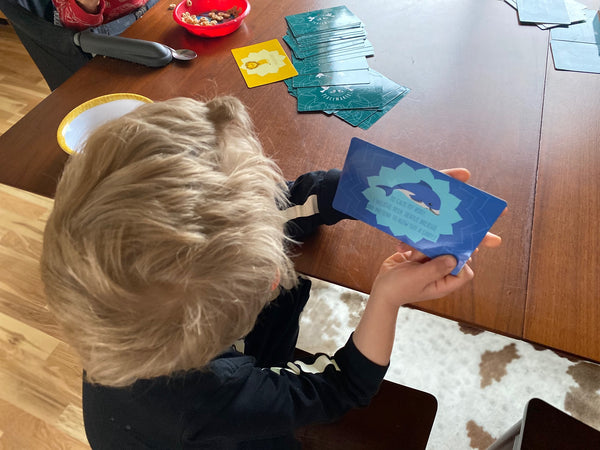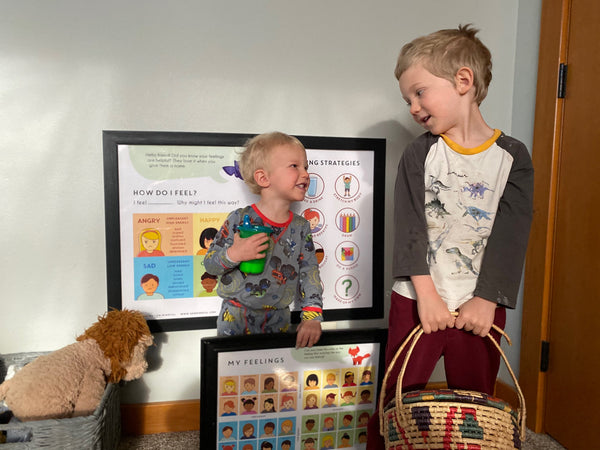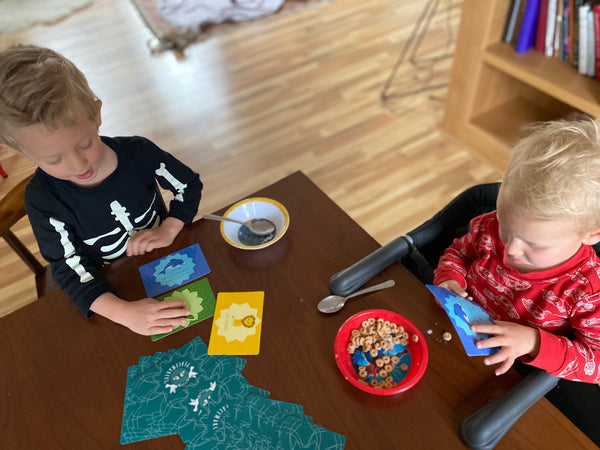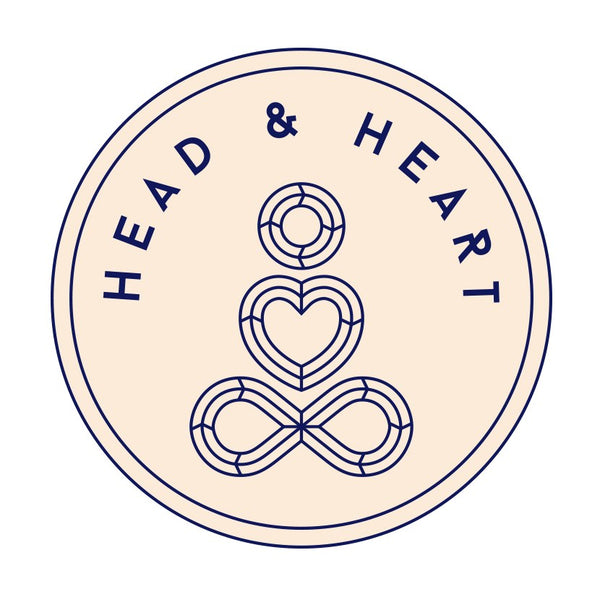Home
Mindful Moments Blog
Social worker and mom uses yoga and positive affirmations to heal herself and her family

Social worker and mom uses yoga and positive affirmations to heal herself and her family

“Compassion is the path to changing the world,” says Ellen Slater, a mama of two and founder of Head and Heart, an organization that marries her passions of social work and yoga.
Ellen uses tools like positive mantra cards and social-emotional games that teach kids about emotions in her work with families to encourage healing from stress and trauma. “We are all woven together. When we find wholeness in ourselves, it affects our families and our communities. I believe that self-compassion leads to human compassion.”

Ellen's path to working with children and families at risk of higher levels of trauma and stress started at an early age.
“My first memory was in elementary school. I grew up in St. Louis and could walk to school, yet it wasn’t always easy getting me out of the house to go. One day I noticed that some of my classmates were bussed from the city, and had been on the bus for hours to get to our school. I remember thinking about the motivation and courage it took for these young kids, no different than me, to bus to a strange neighborhood, more often than not as a minority. I couldn’t make sense of what I was noticing at the time, nor could I for a while, but I can see now that even as a young child, I was headed towards working in the field of social work.”

As a social worker, Ellen focused on trauma, anxiety, and the impact of stress on the brain and body. This is when Ellen turned to yoga. “Yoga brought peace to my life and helped me shed the weight of striving to be perfect. Intellectually, I understood that this way of thinking was not helpful - but this insight only took me so far! We can realize that our thoughts and beliefs are unhelpful, but truly unearthing them is challenging.”
Ellen's personal healing journey coupled with her degree in social work and her experiences as a yoga instructor led her to found Head and Heart. “The purpose of Head and Heart is to spread compassion, inspiring people to treat each other and the earth with kindness. I've witnessed the profound impact mindfulness tools like yoga and meditation can have on children and adults alike, and I want to share them.”
When Ellen saw Generation Mindful on Instagram, she instantly gravitated toward the tools. “These tools beautifully promote peace. We all have emotions, and all emotions are welcome. It's how we learn from, manage, and respond to them that matters.”
Ellen has made the PeaceMakers cards found in the Time-In ToolKit a daily ritual within her home. “At breakfast, we each pick a mantra card as our intention for the day. We post them in the kitchen’s window sill and refer to them throughout the day as gentle reminders of our intention for that day. It’s a practice of self-compassion and it helps us remember how we want to show up in the world.”
Ellen shares that the most important gift she can offer her kids is self-awareness and emotional literacy. "Emotional skills help children in every domain of life. It's a process and kids are still going to be overwhelmed by emotions at times... but when my 4-year-old son turns to me when his 2-year-old brother is messing with his legos and says, ‘I’m feeling frustrated, Finn is touching my legos,’ my heart soars.”
Ellen has incorporated PeaceMakers' mantra cards into her yoga sessions, too. “In my kid’s classes, I use the cards as themes. We work with a single card, reading the mantra intention at the start and end of the class, using prompts and poses to help children embody the intention throughout the class as well.”
Ellen shares that healing tools like PeaceMakers' mantra cards are not for children alone. “Mindfulness was not mainstream when we were being raised, and so many adults do not have these skills developed yet either.”

By using evidence-based ancient healing practices alongside her clinical experience, Ellen teaches that through the connection of the head and heart, we heal and transform, teaching these same skills to our children, too.
When asked for one tip she'd like to share with parents, Ellen shares, “Model emotional literacy for kids. Notice out loud what you are feeling, and then show them how you cope. Normalize emotions, because emotions are information, and mindfulness permits us to choose how to respond to that information.” _____________
Generation Mindful creates educational tools, toys, and programs that nurture emotional intelligence through play and positive discipline. Join us and receive joy in your inbox each week.






